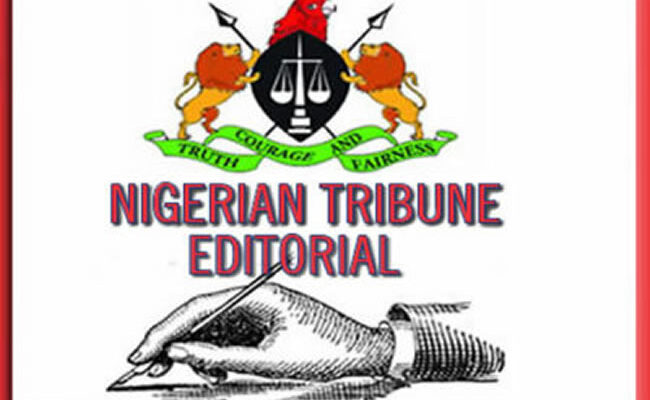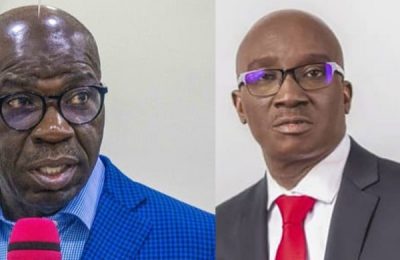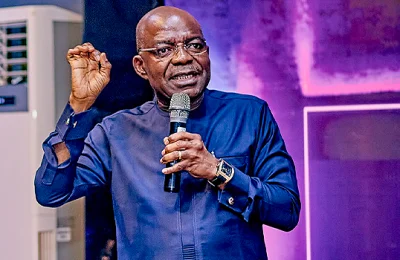LAST week, Nigeria’s apex court, the Supreme Court of Nigeria, ruled that funds allocation to local governments from the Federation Account should be paid directly to local governments instead of the previous practice of paying such allocations to the State Joint Account for Local Governments. According to the court, the “demands of justice require a progressive interpretation of the law.” It added: “It is the position of this court that the federation can pay LGA allocations to the LGAs directly or pay them through the states. In this case, since paying them through states has not worked, justice of this case demands that LGA allocations from the federation account should henceforth be paid directly to the LGAs.” By this ruling, the Supreme Court has barred governors from toying with LG funds. The funds must go to them directly. Indeed, the decision of the court has been hailed as a means to end governors’ stranglehold on local government funds.
In the same judgment, the Supreme Court also declared the use of caretaker committees to run the affairs of local government illegal. Significantly, it ordered direct allocation of funds to only local governments with democratically elected LG chairmen and councillors. Henceforth, states must conduct elections to put democratically election officials in local governments for such LGs to access the funds from the Federation Account. In its lead judgment delivered by Justice Emmanuel Agim, the apex court held that no House of Assembly of any state has the power to make laws that could, in any manner, interfere with monies meant for the LGAs. State governors are barred from receiving LG funds. This effectively prevents appointed caretaker committees from accessing funds from the Federation Account to local governments. It is hoped that this will discourage or end the proclivity of state governors to dissolve elected local government councils and their chairmen and replace them with appointed caretaker committees. This practice by state governments has effectively prevented democracy from taking root at the local government level, as envisaged by the constitution which has made provisions for democratically elected officials to run local governments in Nigeria.
Naturally, the judgment has generated a lively debate, with some praising it as being promotive of local government autonomy. Some have, however, described it as a blow to the quest for ‘true’ federalism marked by devolution because it strengthens the Federal Government’s influence at the local government level. Still, others are of the view that the judgment panders to the alleged desire of the president to strengthen his hold on the country by undercutting state governments, thereby dealing directly with local governments. Some have also argued that the constitutional guarantee of the current system of local government merely guarantees the inequity in the distribution of local governments across the country as done by the military. They repudiated the current system of local governments created through federal power, while calling for a return to a situation where the creation and sustenance of local governments is residual to the state.

It is our opinion that the judgment has returned the country to the practice that graced the return to democracy in 1999 under President Olusegun Obasanjo, who paid local government fund allocation from the Federation Account directly to the local governments. At the time, state governors went to court to force the Federal Government to pay the money into the State Joint Local Government Account, a practice that began under the President Umar Musa Yar’Adua, and which has now been discontinued by the order of the Supreme Court. Nigeria should learn from the experience during the Obasanjo era and post-Obasanjo era in reflecting on the consequences of the latest decisions of the Supreme Court.
Under President Obasanjo, state governments exercised little or no control over local governments funds. Local government chairmen became key actors in national politics. They used local government funds to strengthen their Association of Local Governments of Nigeria (ALGON) and lobbied the National Assembly to extend the tenure of local government officials. The ALGON went on a spending spree, buying SUVs for the police and other collaborative organs at the federal level to the chagrin of state governors. Thus, instead of local governments addressing local issues, they sought a place in national politics, above the states. Local accountability was trounced, while the aspirations of local government peoples were superseded by the emergence of powerful chairmen who went around with police escorts, lording it over citizens at the grass roots while misusing public funds. This was the situation across the country with the exception of Lagos State whose local government funds were seized when the then governor and current president, Bola Tinubu, created local community development areas (LCDAs) to undercut the influence of the Federal Government.
Under President Yar’Adua and since obtaining the ruling from the Supreme Court, the State Joint Local Account Allocation Committees (JAAC) emerged as an effective tool in the hands of state governors. It was used to hijack local government funds. Several governors, armed with the local government funds, created LCDAS and distributed funds to local governments as they deemed fit, without transparency and accountability. The local governments identified by the constitution were rendered impotent with access to the funds being only at the mercy of the governors. The sheer paralysis of activities at the local governments informed the quest for local government autonomy around which the Supreme Court’s decision is being evaluated. Learning from the Obasanjo and the post-Obasanjo experience, it is our opinion that there is a need to approach the judgment with great sobriety. The situation at the local governments is messy and complicated. It was the Supreme Court that upheld the operation of the State Joint Local Government Account in the first place, but now it has suspended and described its use as merely procedural and ordered the direct payment to local governments. What becomes of the State Joint Local Government Account?
Inasmuch as it is the right for LGs to have control over their own money, it is also important to ensure that Supreme Court’s decision is not merely replacing one inefficient and corrupt system with another system that is reckless and devoid of accountability. We were witnesses to the behaviour of chairmen who controlled their funds, but were absent in their local governments and looked up to Abuja instead of addressing and promoting development at the community level during the Obasanjo era. What guarantee is in place to avoid a de ja vu? It is doubtful that the implementation of the Supreme Court’s current judgment can guarantee the autonomy of local government administration. Although it will debar governors and Houses of Assembly from dissolving elected local government councils since payment of allocation from the Federation Account will not be made to unelected officials at the local government level, it does not adequately address some fundamental issues at the local governments. For instance, it has not addressed the situation where State Independent Electoral Commissions (SIECS) persistently conduct sham elections to declare the candidates of the ruling party as winner of all seats at the local government level. It has also not addressed the inequity of the lopsided distribution of local governments across the country based on the creation of local governments by past military governments to satisfy sectional and personal interests.

Since the current Supreme Court’s decision does not address the fundamental problems with the local government administration in Nigeria, there is a need for a wider debate on how to achieve a workable system of local government administration that respects local government autonomy and institutes democratic and accountable governance at that level.
Read Also: ‘LG autonomy will expose govs’ incompetence, unproductiveness’







